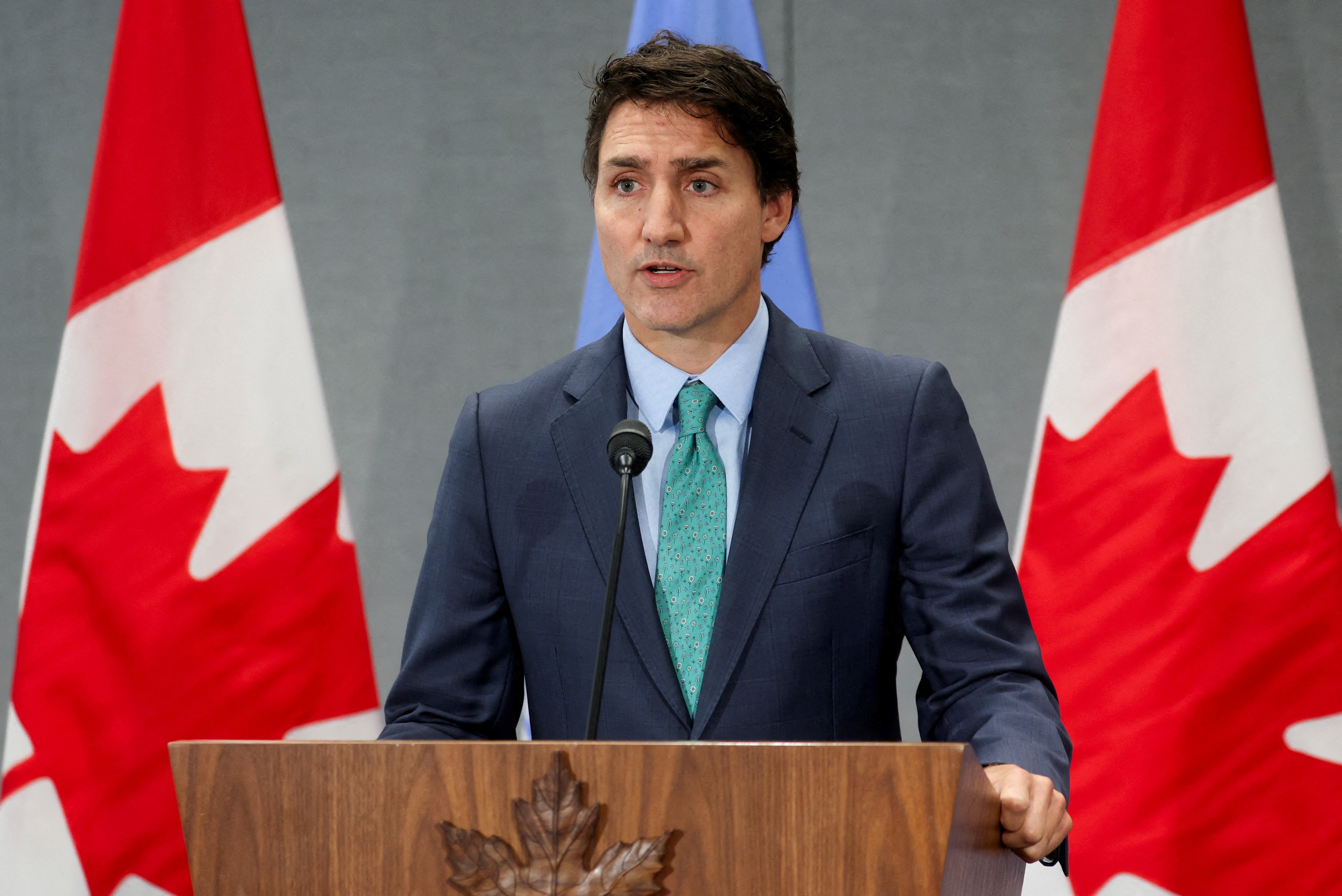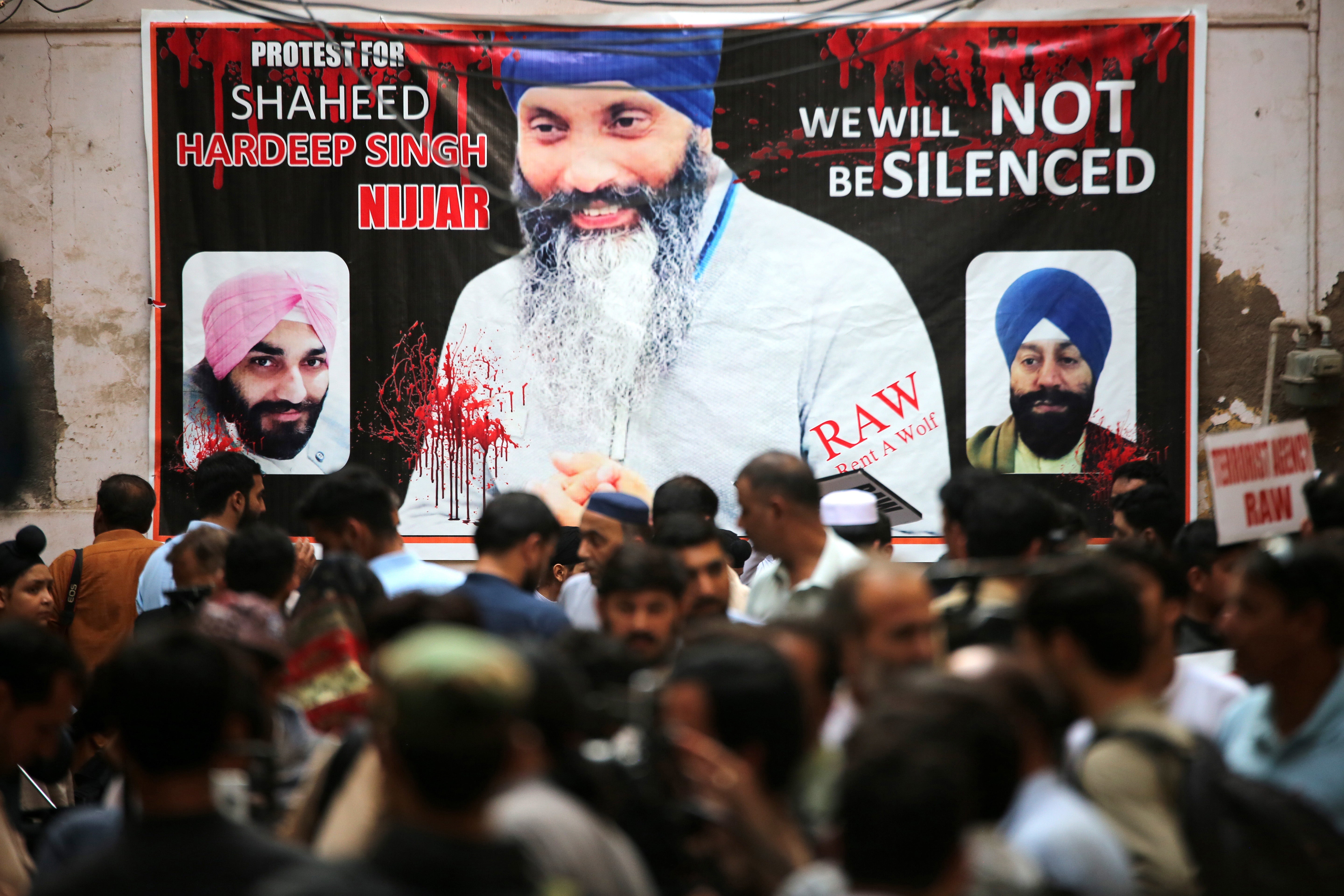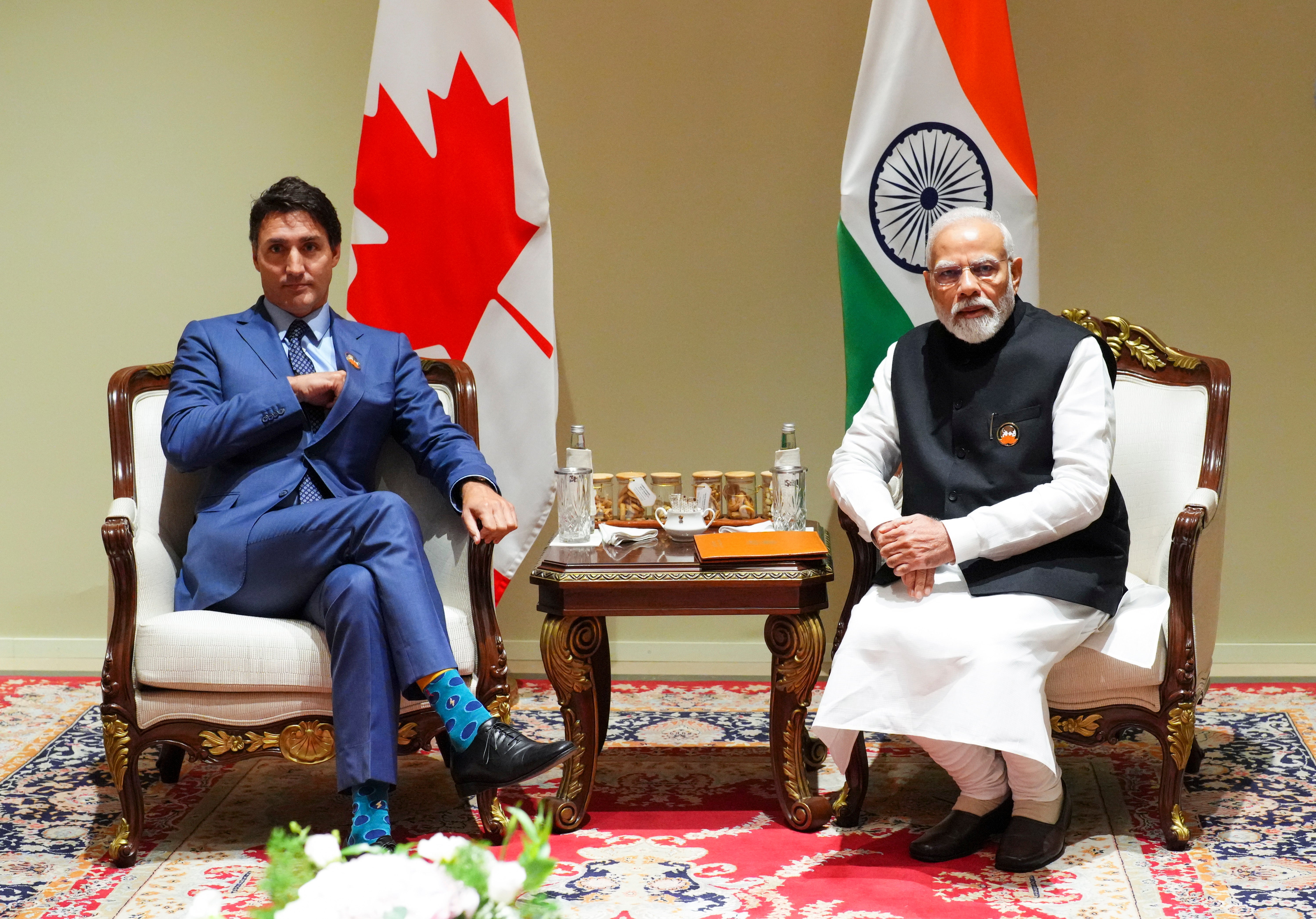Intelligence input on Sikh leader’s murder came from Canada’s Five Eyes ally, report says
Intelligence gathered after months-long investigation also includes communications from Indian diplomats working inside Canada, says report
Your support helps us to tell the story
From reproductive rights to climate change to Big Tech, The Independent is on the ground when the story is developing. Whether it's investigating the financials of Elon Musk's pro-Trump PAC or producing our latest documentary, 'The A Word', which shines a light on the American women fighting for reproductive rights, we know how important it is to parse out the facts from the messaging.
At such a critical moment in US history, we need reporters on the ground. Your donation allows us to keep sending journalists to speak to both sides of the story.
The Independent is trusted by Americans across the entire political spectrum. And unlike many other quality news outlets, we choose not to lock Americans out of our reporting and analysis with paywalls. We believe quality journalism should be available to everyone, paid for by those who can afford it.
Your support makes all the difference.Canada’s intelligence on involvement of Indian agents in a Sikh separatist leader’s assassination on its soil includes information sourced from an unnamed ally in its Five Eyes alliance, according to a new report.
The killing of Hardeep Singh Nijjar – who advocated for the Khalistan movement – three months ago has led to India and Canada spurning diplomatic ties with each other.
As a livid New Delhi suspended visa services for Canadians on Thursday, Ottawa has come under domestic and international pressure to release evidence for the explosive allegations on Nijjar’s 18 June murder. Both nations days before expelled diplomats from each other’s countries in tit-for-tat moves.
Canada’s intelligence on the murder includes information sourced from an unnamed ally in the Five Eyes alliance, revealed national broadcaster Canadian Broadcasting Corporation on Thursday. The Five Eyes is an intelligence-gathering alliance of countries that includes the US, UK, Canada, Australia and New Zealand.
The intelligence gathered after a months-long investigation also includes communications from Indian officials and Indian diplomats themselves who were working inside Canada, said the report.
The allegation was based on surveillance of Indian diplomats, a Canadian official familiar with the matter told The Associated Press. The official, who spoke on condition of anonymity because they were not authorized to discuss the matter publicly, did not say which of Canada’s Five Eyes allies provided the intelligence.
The details about the intelligence that Canada possesses – that are yet to be confirmed – come shortly after prime minister Justin Trudeau again said there were “credible reasons” behind Indian government agents being involved in Nijjar’s murder.
In the months following the slaying, the head of Canada’s intelligence agency and the national security and intelligence adviser travelled to India to seek Delhi’s assistance in the investigation before Mr Trudeau himself visited India for the G20 summit.
Canada’s national security and intelligence adviser Jody Thomas made two trips to India – the first for four days in mid-August and a second earlier this month for five days to discuss their probe with Indian officials, reported CBC.

Her last meeting overlapped with Mr Trudeau’s tense G20 visit and subsequent meeting with Indian prime minister Narendra Modi in which he raised the issue of the killing. India has not yet responded to the new revelations.
Speaking to reporters at the UN in New York, Mr Trudeau said he cannot divulge details about the allegations.
“I can assure you that the decision to share these allegations on the floor of the House of Commons... was not done lightly,” Mr Trudeau said.
“It was done with the utmost seriousness.”
The Canadian government is also weighing retaliation over the Indian foreign ministry’s visa suspensions, but no decision has been taken yet, government sources told CBC.

Canada’s UN envoy Bob Rae said the evidence may not come soon.
“This is very early days,” Mr Rae said on Thursday, saying while facts will emerge, they must “come out in the course of the pursuit of justice”.
“That’s what we call the rule of law in Canada,” he said.
Analysts say relations between Canada and India have reached their lowest and will not mend anytime soon as Delhi has taken a hardline approach.

Indian foreign ministry spokesperson Arindam Bagchi lashed out at Canada on Thursday, accusing it of providing a safe haven to terrorists carrying out anti-India activities. Nijjar was dubbed a “terrorist” by Indian officials as well, and the Indian government had offered a cash reward for information leading to his arrest.
Mr Bagchi said the visa suspensions come on the heels of “incitement of violence, inaction by Canadian authorities and the creation of an environment that disrupts the functioning of our consulates”.
India has also moved to downsize the Canadian diplomatic presence in New Delhi, he said, adding that Canada has more embassy workers in its capital than vice versa and that it wants to restore “parity”.
Nijjar, 45, was shot dead on 18 June in the parking lot of a gurdwara in Surrey, British Columbia and Mr Trudeau publicly made the allegations exactly three months to the murder.




Join our commenting forum
Join thought-provoking conversations, follow other Independent readers and see their replies
Comments